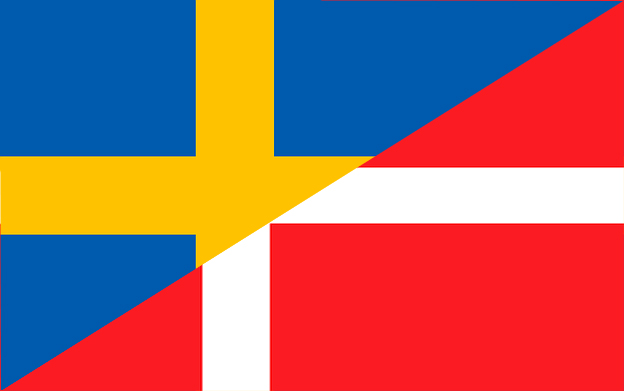Sustainable Scandinavia
Sweden & Denmark
Example of a Past Course Offering for Summer Programs

Program Highlights
- Get first-hand experience of applied environmental sustainability as it is practiced in Sweden and Scandinavia
- Visit sustainable energy plants, co-working spaces, eco-housing developments, etc.
- Learn about the Nordic Model of Democratic Socialism, and understand how it is implemented in Sweden in terms of economic, social, and environmental policies
- Develop an understanding of the three-legged stool of sustainability and interdependence between the elements
Course & Program Information
Course Name: Sustainable Scandinavia
Course Number: ENVR 280A
Credit Number: 2
Pre-requisite: ENVR 150 or permission of instructor
Designation: none
Course Description:
This course will introduce students to the Nordic Model of social democracy as a framework for addressing sustainability. While we will address all three components of sustainability (social, economic, and environmental), approximately 2/3 of the course materials will focus on environmental sustainability. The course takes place largely in southern Sweden, and topics include energy (renewable energy, small-scale energy networks, and waste-to-energy plants), sustainable transportation networks, shared spaces/cooperatives, planned neighborhoods, compulsory recycling, gender equity initiatives, work-life balance regulations, and outdoor preschools. In addition to reading about these topics, students will experience them first-hand on site visits. Students will also attend thesis presentations by students graduating with a Master's in Environmental Studies and Sustainability Science and Lund University. Offered for A-F grading only.
Program Information:
Sweden is widely recognized as a country dedicated to sustainability. Sweden implemented a carbon tax in 1995 and is in the process of attempting to become the world’s first fossil-fuel free nation by 2050. Sweden’s political model of Democratic Socialism is a subject of new interest in the United States, with conversations about single-payer health care, free college, etc. Essentially, Sweden is decades ahead of the US in all three areas of sustainability: environmental, economic and social. By spending three weeks in southern Sweden and Copenhagen (Denmark), students will be able to experience many of these aspects first hand: sustainable and affordable public transportation, sustainable packaging and recycling, fossil fuel free power generation, etc. Students will also have the chance to interact with Master’s students in Environmental Studies at Lund University, and can talk to them about their experience of education in Sweden.
This course has four locations: Stockholm, Vaxjö (recently named the greenest city in Europe), Malmö/Lund, and Copenhagen. In each place we will meet with local experts in sustainability and will tour sustainable housing, renewable energy plants, co-working spaces, etc. We will have one touristy day in Stockholm for visiting the Viking museum and other key locations, but for the most part this is a study trip and not a tourist experience. Students will have free time almost every day and will discover that people their age in Sweden are friendly and speak excellent English. Each student will choose one aspect of sustainability as their focus and will conduct an individual interview and write a paper on that topic. This course counts as 2 credits toward the required elective courses in the Environmental Studies major and minor. Majors and minors are encouraged to combine this course with one of our other 2-credit electives (the Climate courses or the Montana field experience) to count as one 4-credit elective.
Program Cost
During a summer program abroad, CSB/SJU students will pay the cost of the required 2 CSB/SJU credits at the reduced summer tuition rate. In addition, all students studying abroad will pay an Education Abroad Program Fee. Full program costs will be available on or by September 15. Find more information about what is included on the CSB/SJU Global Portal.
Students should plan early for a successful study abroad experience. Financial aid and scholarships may be available to help with program costs, but must be searched out well in advance.
Accommodations
Accommodations are in three hostels and one hotel. Students will share rooms ranging in size from two people to five, depending on our location. We will not be sharing rooms with people outside of the CSB/SJU group. Hostels are simple but comfortable accommodations with twin beds, sheets and blankets provided, common spaces for meeting and talking to other travelers, and kitchens available for simple meal prep. We will help students with shopping and cooking simple meals like pasta and soups. All accommodations will have WIFI. Students should bring a towel or decide to rent one from each hostel (for approximately $2).
Program Director Information
|
Jean Lavigne, Associate Professor of Environmental Studies has led short term courses to Thailand and Japan, and the CSB/SJU semester long France and Roman-Greco programs. She traveled to Sweden in 2017 to meet people and make arrangements for this course. Contact [email protected]. |
|


